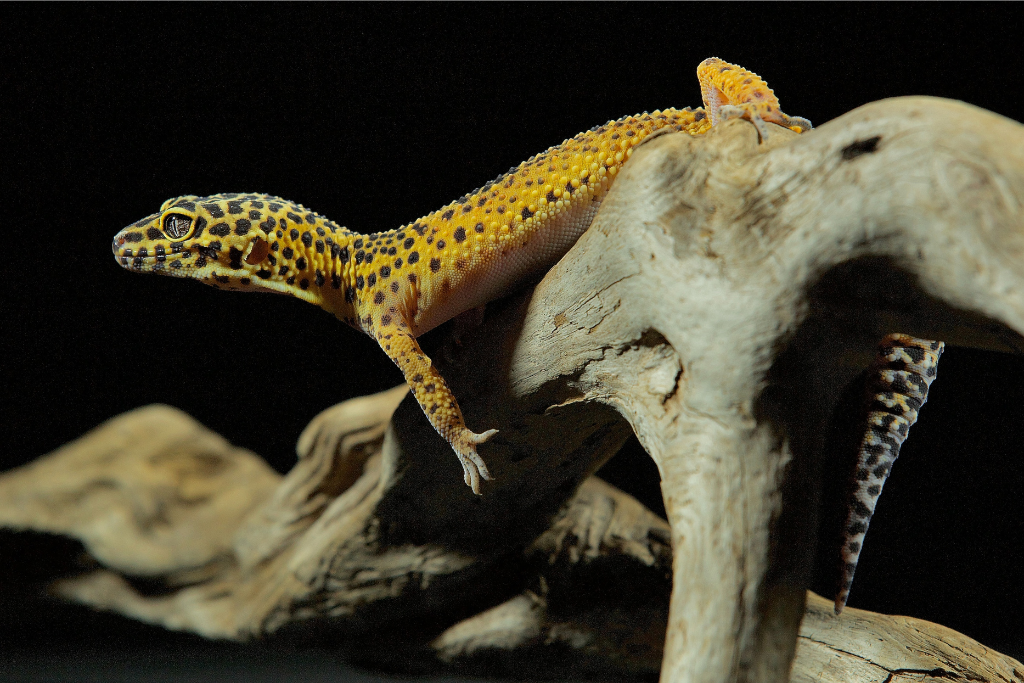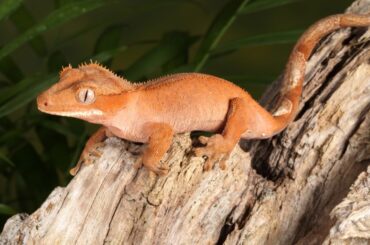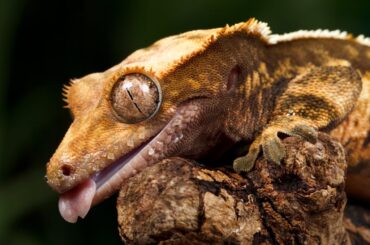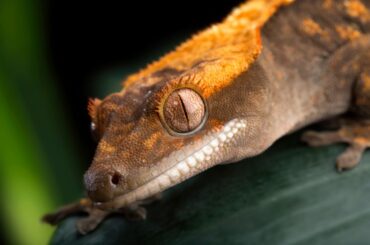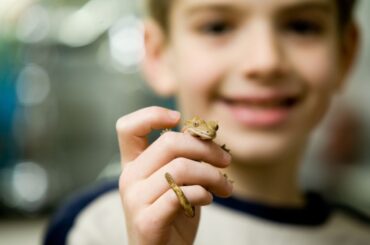Are you worried about your leopard gecko’s loss of appetite? Wondering why they’re not eating as they usually do?
Leopard geckos are small, insectivorous lizards, native to specific regions, and their diet plays a crucial role in their overall health and well-being.
8 Reasons for Leopard Geckos Not Eating
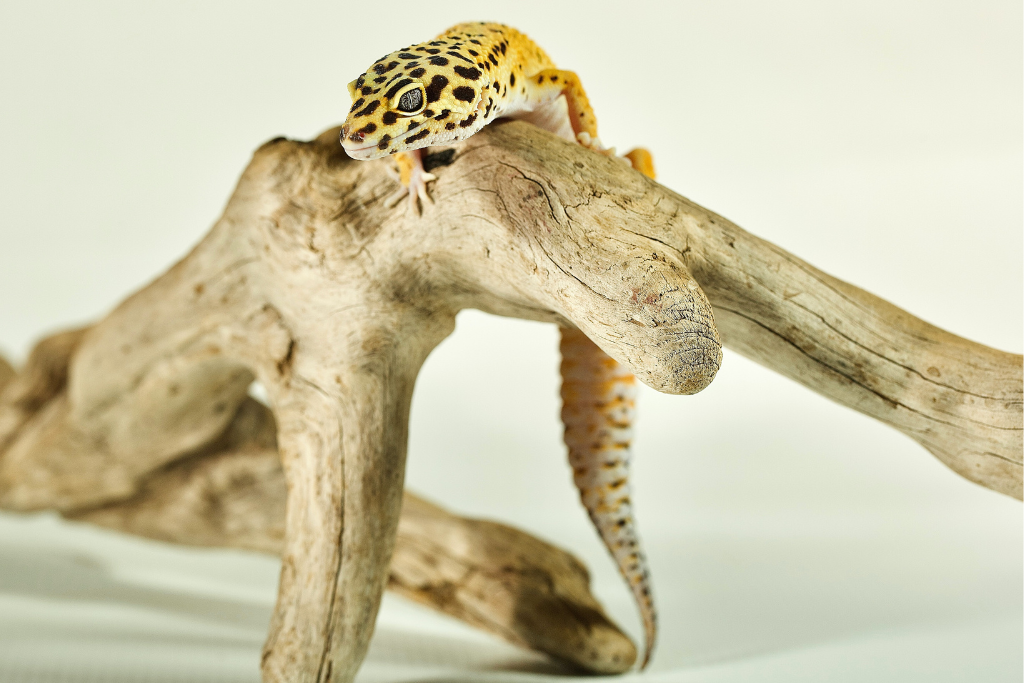
If your leopard gecko refuses food, there could be several reasons for this behavior. Let’s explore 8 common factors that may contribute to their lack of appetite.
Cold Environment
Low temperatures can significantly affect a leopard gecko’s appetite. These reptiles are ectothermic, relying on external heat sources to regulate their body temperature. If the ambient temperature in their enclosure is too cold, their metabolism slows down, reducing their appetite.
Maintaining appropriate heat sources, such as under-tank heating pads or heat lamps, is crucial to ensure your gecko’s environment is warm enough to stimulate its appetite.
Impacted Feces
Fecal impaction occurs when a leopard gecko has difficulty passing stool due to constipation or the presence of hard, dry feces.
Soaking your gecko in a shallow bath and gently massaging their belly can help alleviate the impaction and stimulate bowel movements.
Sickness
Loss of appetite can be a sign of underlying sickness in leopard geckos. Respiratory infections, parasites, or other illnesses can cause them to lose interest in food.
Injury
Wounds or injuries can also affect a gecko’s eating habits. Pain or discomfort from injuries may cause them to lose their appetite. Providing a safe and stress-free environment, appropriate pain relief, and proper care can help encourage their appetite to return.
Poor Lighting and Temperature
Inadequate lighting and temperature conditions can harm a leopard gecko’s digestion and metabolism. Insufficient exposure to natural or artificial light and incorrect temperature gradients in their enclosure can disrupt their biological functions, including appetite.
It’s important to provide proper lighting, such as UVB bulbs, and maintain appropriate temperature ranges to support their overall well-being.
Vision Problems
Leopard geckos rely heavily on their vision to locate prey and feed. Retained skin on their eyes during shedding can hinder their ability to see and eat. Proper shedding conditions and humidity levels can help prevent eye issues and ensure your gecko can see their food properly.
Shedding Process
Leopard geckos shed their skin periodically as they grow. During the shedding process, their appetite may decrease. Maintaining adequate humidity levels in their enclosure supports a healthy shedding process. Insufficient humidity can lead to incomplete shedding, which may cause discomfort and further reduce their appetite.
Lack of Supplements
A balanced diet is crucial for leopard geckos, and providing calcium and mineral supplements is essential for their overall health. Calcium deficiency can lead to metabolic bone disease, causing weakened bones and muscle problems. If your gecko’s diet lacks proper supplementation, it can result in a loss of appetite and other health issues.
How Long Can a Leopard Gecko Go Without Eating?
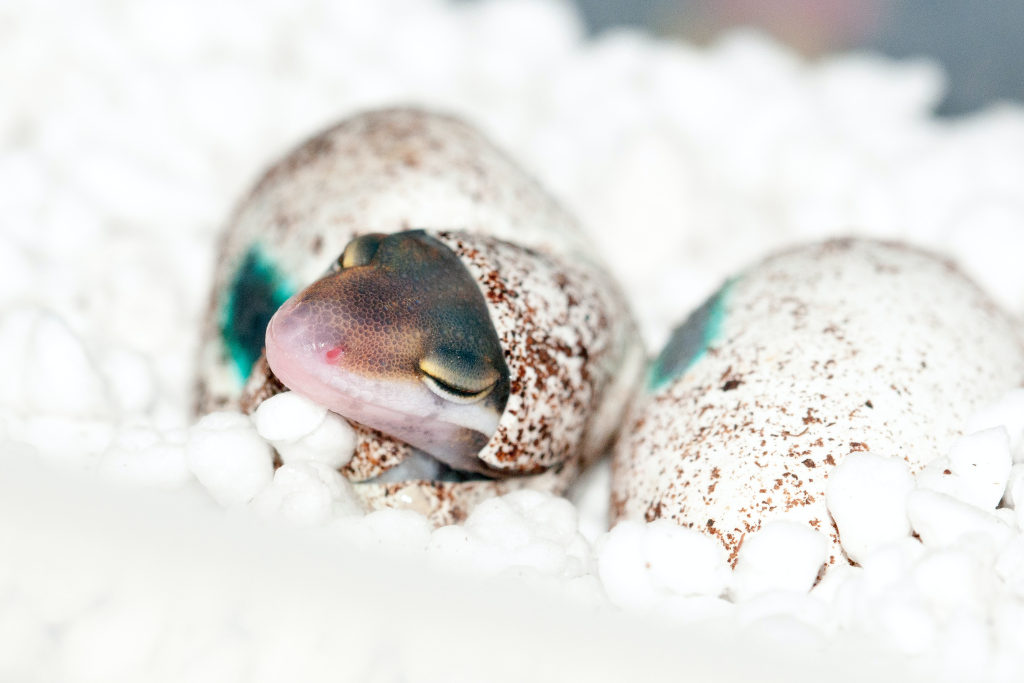
Leopard geckos can go quite some time without eating. It’s normal for them to not eat for a week or even a few weeks, especially when they’re shedding or feeling stressed.
It’s important to keep an eye on their weight during this period. If they go without eating for more than two weeks or if they lose a lot of weight, it’s a good idea to take them to a vet to make sure everything is okay. The vet will check their health and make sure they’re not facing any problems.
Consulting a Veterinarian
If your leopard gecko isn’t eating or shows other worrying signs, getting help from a reptile veterinarian is important. They specialize in caring for unique animals, like geckos, and can properly diagnose the problem and suggest the right treatment.
Don’t hesitate to contact a professional to ensure your gecko gets the care it needs.
Conclusion
Taking good care of your leopard gecko and keeping its environment just right is crucial for its health. If your gecko isn’t eating, consider the temperature, shedding process, possible injuries, and the right supplements.
Keep an eye on your gecko’s weight and behavior so you can catch any problems early on. Remember, a balanced diet, the right habitat conditions, and help from a reptile vet are all important for keeping your leopard gecko happy and healthy.
FAQs
How Often Should I Feed My Leopard Gecko?
Leopard geckos should be fed every other day, providing them with appropriate-sized insects as their main food source.
What are Some Suitable Food Options for Leopard Geckos?
Leopard geckos primarily eat live insects like crickets, mealworms, and dubia roaches. It’s important to gut-load and dust these insects with calcium powder before feeding.
Can I Feed My Gecko Insects I Find in My Garden?
No, feeding your gecko insects from your garden is not recommended. These insects may have been exposed to pesticides or carry parasites that could harm your gecko’s health.
How Can I Provide the Right Temperature Gradient in My Gecko’s Enclosure?
You can achieve a suitable temperature gradient by placing a heat source on one side of the enclosure, such as an under-tank heating pad. This allows your gecko to thermoregulate by moving between warmer and cooler areas.
What are the Signs of Shedding in Leopard Geckos?
Signs of shedding in leopard geckos include dulling of their skin color, cloudiness over their eyes, decreased appetite, and increased restlessness or hiding behavior.
How Do I Prevent Impaction in My Gecko?
To prevent impaction, ensure that your gecko’s enclosure has a safe substrate to ingest, such as reptile carpet or paper towels. Avoid using loose substrates like sand or gravel.
Are There Any Specific Vitamins or Supplements I Should Provide to My Gecko?
Yes. Leopard geckos require calcium and mineral supplementation. Dusting their insects with calcium powder and occasional multivitamin supplementation helps support their nutritional needs.
How Can I Tell if My Gecko is Dehydrated?
Signs of dehydration in geckos include sunken eyes, wrinkled skin, lethargy, and decreased appetite. Ensure your gecko has access to a shallow water dish and regularly monitor their hydration.
Can Stress Affect a Gecko’s Appetite?
Yes, stress can affect a gecko’s appetite. Providing a suitable, stress-free environment with proper hiding spots and minimizing disturbances can help maintain their appetite.
How Long Does the Shedding Process Usually Take for Leopard Geckos?
The shedding process for leopard geckos typically takes around 7 to 10 days. It may vary depending on individual geckos and environmental conditions.

